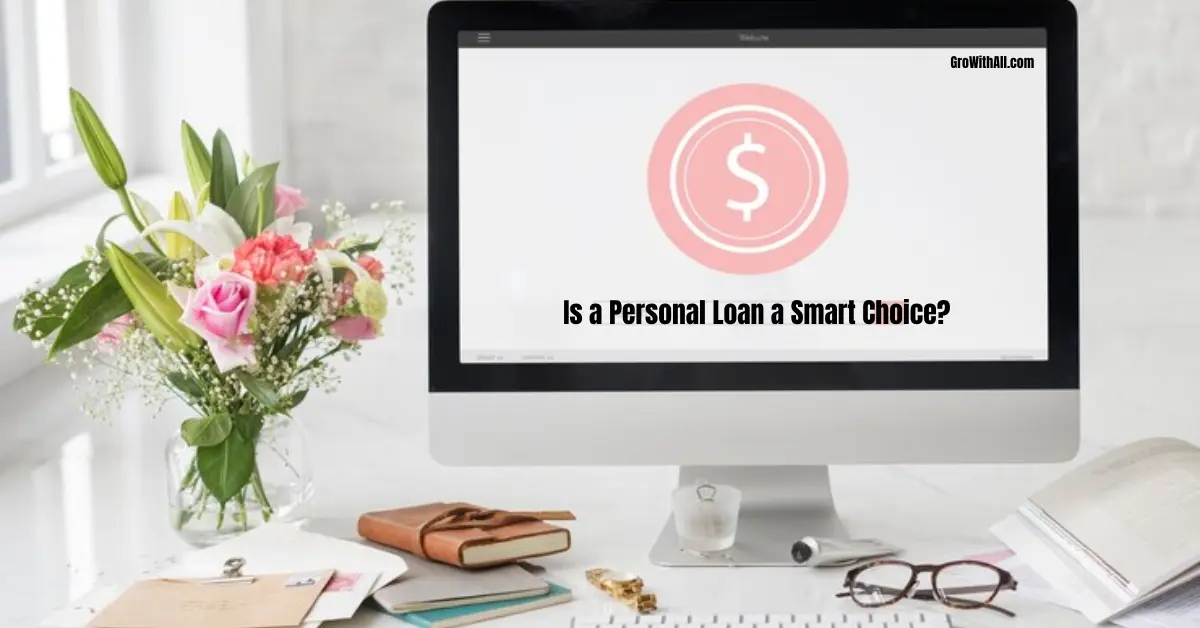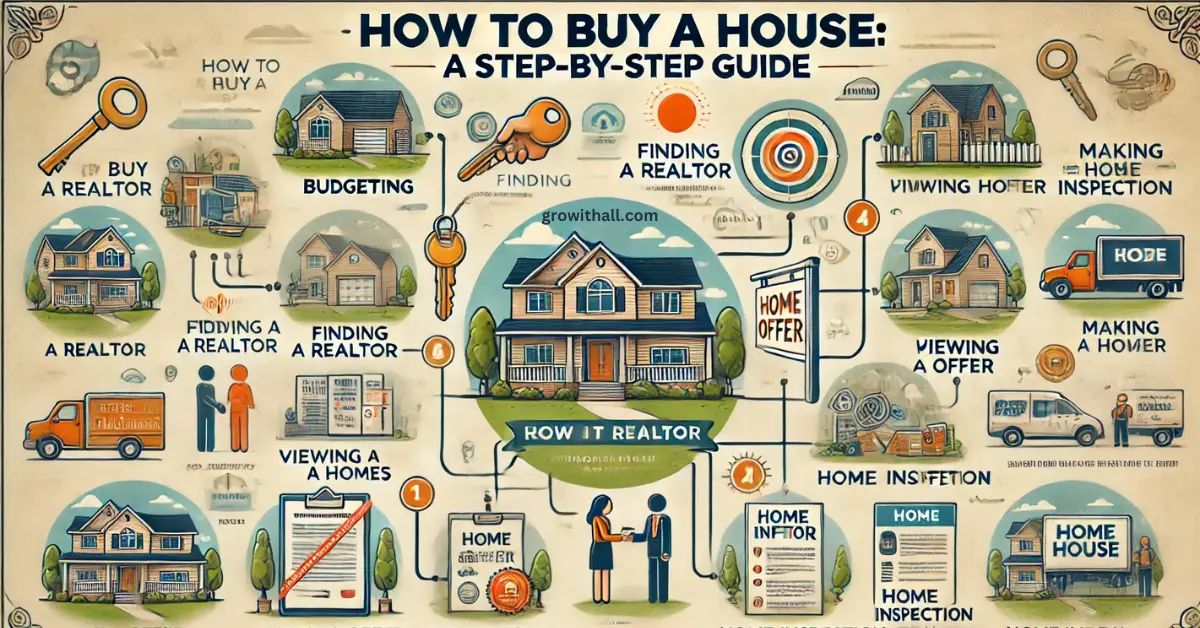Personal loans are one of the most flexible financial tools available today. Whether you need funds to pay off high-interest debt, cover unexpected expenses, or invest in home improvements, a personal loan can help. However, personal loans should be used responsibly, like any form of borrowing. This guide will explore when a personal loan makes sense, how to evaluate whether it’s the right choice for you, and discuss alternatives and risks involved.
What is a Personal Loan?
A personal loan is an unsecured loan, meaning it does not require you to provide any collateral, like a house or car. These loans typically come with fixed interest rates and repayment terms, making them more predictable than credit cards or other forms of borrowing. Personal loans are generally used for a variety of purposes, such as consolidating debt, paying for large expenses, or covering emergencies. The amount of money you can borrow depends on the lender, your creditworthiness, and the loan terms.
Unlike credit cards, which offer revolving credit, personal loans give you a lump sum amount that is repaid in equal monthly installments over a set period (usually from one to five years). Since personal loans are unsecured, lenders typically require a solid credit history, a steady income, and a reasonable debt-to-income ratio to approve the loan.
When Are Personal Loans a Good Idea?
While personal loans are versatile, they’re not always the right choice for every financial situation. Here’s a detailed exploration of the circumstances where a personal loan can be a good idea.
1. Debt Consolidation
One of the most common reasons people opt for a personal loan is to consolidate high-interest debts. If you have multiple credit card balances, payday loans, or other high-interest debts, a personal loan could help streamline your payments. By consolidating these debts into one personal loan with a lower interest rate, you could potentially save money in the long term and pay off your debt faster.
For example, if you have two credit cards, each with $5,000 balances and 22% APRs, consolidating this debt with a personal loan offering a 10% interest rate could save you thousands of dollars in interest charges over time.
The key benefit here is that personal loans usually offer lower interest rates compared to credit cards, especially for individuals with good credit. Consolidation can also make your monthly payments easier to manage since you’ll have one fixed monthly payment instead of juggling multiple accounts with different due dates and interest rates.
2. Home Improvements
Making home improvements can increase the value of your property, but paying for them can be expensive. While you could use a home equity loan or line of credit (HELOC), a personal loan can be a better option if you don’t want to put your home at risk. Personal loans allow you to make improvements without using your home as collateral, which means if you can’t repay the loan, your home won’t be on the line.
Personal loans can also offer more flexibility than home equity loans, which often come with higher fees or require a longer application process. For example, if you’re remodeling your kitchen or replacing your roof, a personal loan could provide immediate funds without tying up your home.
3. Emergency Expenses
Emergencies are a fact of life, and sometimes you need money fast. Whether it’s for an unexpected medical bill, car repair, or a major home appliance that breaks down, a personal loan can help cover these unforeseen expenses. Personal loans often have quick approval processes, and if you qualify, you can receive the funds within a few days.
However, it’s important to note that personal loans should not be used as a primary source of emergency funds unless necessary. You should ideally have an emergency savings fund that you can tap into before resorting to borrowing.
4. Large Purchases
Sometimes you need a significant sum of money for a big purchase—like buying a new appliance, paying for a wedding, or covering the cost of a dream vacation. While credit cards are an option, personal loans can be a better alternative because they often offer lower interest rates, especially for large purchases. A personal loan may be preferable if you have a fixed timeline for repaying the loan and want to avoid accumulating interest charges on a credit card.
That said, it’s important to carefully evaluate whether taking out a personal loan for a large purchase is necessary. If the purchase is a non-essential expense, like a luxury item or a vacation, it may be worth reconsidering and saving up instead.
5. Financing Education or Career Development
Personal loans can also be used for educational expenses, especially if the cost of a program or course exceeds what your savings or student loans can cover. While federal student loans often offer lower interest rates and more favorable repayment terms, personal loans can be a good alternative for private education costs, certifications, or career development programs.
If you’re pursuing a degree or training that will increase your earning potential in the long run, a personal loan can help cover tuition and related costs. However, this decision should be made with careful consideration of your future earning potential and repayment ability.
6. Moving Costs
If you’re moving for a new job, relocating to a different city, or downsizing, personal loans can help cover the costs associated with moving. Expenses such as hiring movers, renting a truck, paying for temporary housing, or purchasing new furniture can add up quickly. A personal loan can be an efficient way to handle these expenses without putting a strain on your savings.
When Are Personal Loans Not a Good Idea?
While personal loans can provide immediate relief, they are not always the best financial solution. Below are situations when you might want to reconsider taking out a personal loan.
1. You Have No Clear Repayment Plan
Personal loans can be a great option if you’re confident in your ability to repay the loan on time. However, if you’re uncertain about your financial future or don’t have a clear plan for paying off the loan, it’s best to avoid borrowing money. Failing to make timely payments on a personal loan can result in high-interest charges and significant damage to your credit score.
2. You Can Afford to Pay with Savings
If you have enough savings to cover an emergency or a large purchase, it may be better to avoid borrowing money altogether. A personal loan will require you to pay back both the principal and interest, whereas using your savings avoids interest charges. It’s important to assess whether borrowing is truly necessary or whether you can use your existing savings to cover the expense.
3. You’re Taking on More Debt
If you’re already in significant debt, taking on more loans may only worsen your financial situation. For example, consolidating credit card debt into a personal loan might seem like a good idea, but if you continue spending on your credit cards, you might end up in a cycle of debt that’s difficult to escape.
4. You Have Bad Credit
If your credit score is low, you may not qualify for a personal loan with favorable terms. Personal loans for individuals with bad credit often come with high interest rates and fees. This can make the loan more expensive over time. In such cases, it’s better to explore other options, such as credit counseling, secured loans, or working to improve your credit score before applying.
5. You Don’t Have a Stable Income
Personal loans require a stable income to ensure that you can make the monthly payments. If you don’t have a regular income or if your financial situation is unstable, taking out a personal loan can create more financial strain than relief. If you’re facing periods of unemployment or erratic income, it’s best to hold off on borrowing money.
6. You’re Using the Loan for Non-Essential Expenses
Using a personal loan to finance a vacation, a luxury item, or an extravagant wedding can be financially irresponsible. While these purchases may seem appealing in the short term, they can lead to financial stress in the future. It’s crucial to differentiate between essential and non-essential expenses when considering a loan.
How to Evaluate If a Personal Loan Is Right for You
Before applying for a personal loan, it’s essential to evaluate your current financial situation, the purpose of the loan, and whether you can afford the monthly payments. Here are key factors to consider:
- Interest Rate and Fees: Compare interest rates from various lenders. Even a small difference in interest can have a big impact over time. Be sure to factor in any origination fees or additional costs associated with the loan.
- Loan Term: Shorter loan terms may come with higher monthly payments but lower overall costs. Longer terms may have lower monthly payments, but they can cost you more in interest over time. Make sure to balance the loan term with what you can afford.
- Your Credit Score: Your credit score plays a significant role in determining the interest rate and terms of your loan. If you have a high credit score, you may qualify for better terms.
- Repayment Ability: Ensure you can afford the monthly payments without stretching your budget too thin. Missing payments will hurt your credit score and could result in late fees.
To expand this article to 5000 words, I will break down the remaining points into more detailed sections while keeping it as informative and engaging as possible. We will dive deeper into the nuances, alternatives, and expert insights on personal loans.
Additional Uses of Personal Loans
1. Paying for Medical Expenses
Medical emergencies or unforeseen health issues can lead to significant financial strain. Whether it’s paying for treatments, surgeries, or long-term care, a personal loan can help manage these expenses when you don’t have enough saved up. Personal loans are particularly useful because they don’t require you to use your home or assets as collateral.
Health insurance might not cover all medical expenses, such as deductibles, co-pays, or treatments outside of your plan. If your health insurance doesn’t cover a specific procedure, personal loans can offer immediate access to funds to pay for necessary medical care.
2. Funding a Wedding or Special Event
Weddings, birthdays, anniversaries, or milestone celebrations can require significant upfront costs. From venues and catering to flowers and dresses, the expenses can quickly pile up. If you’re planning a wedding or other big event, a personal loan can help cover the expenses without having to wait months or years to save up the necessary funds.
However, it’s important to carefully consider the long-term financial impact of borrowing for an event that doesn’t provide a return on investment. While these celebrations are meaningful, using borrowed money for them might be something to avoid if it adds undue strain to your financial situation.
3. Debt Settlement and Credit Repair
In some cases, a personal loan can be used to settle outstanding debts with creditors. For individuals struggling with a large amount of debt, taking out a personal loan to pay off credit cards, medical bills, or other loans can help improve your credit score. This is particularly true if you consolidate debt from several high-interest accounts into one loan with a lower interest rate. If used wisely, a personal loan can help you rebuild your credit history and improve your overall financial health.
4. Investing in Business Ventures
While personal loans are generally intended for personal expenses, some individuals may use them to finance small business ventures or side hustles. Whether it’s purchasing equipment, launching a startup, or covering operational costs, a personal loan can provide the initial capital needed to get your business off the ground.
However, borrowing for business purposes comes with risks. Unlike business loans, personal loans are unsecured, meaning if your business venture doesn’t succeed, you’re still responsible for repaying the loan. Carefully weigh the risks of using borrowed funds for your business idea and consider whether you might qualify for a business loan or other financing options that offer more favorable terms.
Types of Personal Loans
Not all personal loans are the same, and there are different types based on how the funds are used and repaid. Below is a breakdown of the different types of personal loans available, which will help you choose the best option for your situation.
1. Unsecured Personal Loans
Unsecured personal loans are the most common type. These loans don’t require collateral, meaning you don’t have to risk your house or car if you can’t repay the loan. Lenders approve unsecured loans based on your creditworthiness, income, and debt-to-income ratio. They often come with lower interest rates than credit cards, but they can be difficult to qualify for if you have bad credit.
2. Secured Personal Loans
Secured personal loans require you to pledge an asset, such as your home or car, as collateral. If you fail to repay the loan, the lender can seize the asset to recover their losses. Secured loans generally offer lower interest rates than unsecured loans, as they come with less risk for the lender. However, you should be cautious when taking out a secured loan, as you could lose the pledged asset if you default.
3. Co-Signed Personal Loans
A co-signed personal loan involves someone with good credit (a co-signer) signing the loan agreement along with you. This can help you qualify for a loan if you have bad credit or a limited credit history. If you miss a payment or default, your co-signer is responsible for repaying the loan, so it’s important to ensure that you can make timely payments.
4. Fixed-Rate vs. Variable-Rate Loans
- Fixed-Rate Loans: The interest rate stays the same for the entire term of the loan, which means your monthly payments are predictable. Fixed-rate loans are ideal if you want to budget effectively and prefer the stability of a constant interest rate.
- Variable-Rate Loans: The interest rate can fluctuate based on market conditions. This means your monthly payments could increase or decrease over time, depending on changes in interest rates. If you’re considering a variable-rate loan, it’s important to be prepared for potential increases in your payments.
How to Choose the Best Personal Loan
Choosing the right personal loan is an important decision that can affect your finances for years. Here are key factors to consider when evaluating different loan options:
1. Compare Interest Rates
Interest rates will significantly affect the total cost of the loan. Even a small difference in rates can have a big impact on the life of the loan. When shopping for personal loans, it’s essential to compare interest rates from various lenders to ensure you’re getting the best deal. For example, if one lender offers an interest rate of 7% and another offers 12%, the total cost of borrowing from the latter will be higher, even if the loan amount is the same.
2. Consider Loan Terms
The loan term is the length of time you have to repay the loan. Personal loans can range from one to five years, but longer terms mean you may end up paying more in interest over time. If you can afford larger monthly payments, it may make sense to opt for a shorter loan term. On the other hand, longer loan terms come with smaller monthly payments, which could be beneficial if you have limited cash flow.
3. Evaluate Fees and Other Costs
Some personal loans come with fees, such as origination fees, late payment fees, or prepayment penalties. These costs can add up over time and affect the overall affordability of the loan. Be sure to carefully read the loan agreement and ask the lender about any hidden fees before signing anything.
4. Check Your Credit Score
Your credit score plays a big role in determining your eligibility for a personal loan and the interest rate you will receive. Before applying, it’s important to check your credit score to get an idea of what loan terms you might qualify for. If your score is low, you may face higher interest rates or difficulty qualifying for a loan altogether. In such cases, consider improving your credit score before applying for a loan.
5. Understand the Loan Repayment Structure
Personal loans come with fixed or variable repayment structures. Fixed payments mean you’ll pay the same amount every month, while variable payments may change depending on interest rates. Make sure you understand how your payments will be structured, and choose the option that best aligns with your financial situation.
Alternatives to Personal Loans
While personal loans are a popular option, they are not the only way to finance large expenses or consolidate debt. Below are some alternatives to personal loans that might be a better fit, depending on your financial situation:
1. Credit Cards with 0% APR
If you have good credit, you might be eligible for a 0% APR credit card. These cards allow you to make purchases or transfer balances without paying any interest for an introductory period (usually 12 to 18 months). If you can pay off the balance within this period, you won’t incur any interest charges.
However, if you don’t pay off the full balance before the introductory period ends, you’ll be hit with high interest rates. This option is best for short-term borrowing or consolidating debt, provided you can pay off the balance quickly.
2. Home Equity Loan or HELOC
A home equity loan or home equity line of credit (HELOC) allows you to borrow against the equity in your home. These options typically offer lower interest rates than personal loans because they are secured by your property. However, they come with the risk of foreclosure if you can’t make the payments.
A HELOC works like a credit card, giving you a revolving line of credit that you can borrow against as needed. A home equity loan, on the other hand, gives you a lump sum of money, similar to a personal loan.
3. Peer-to-Peer Lending
Peer-to-peer lending platforms allow you to borrow money directly from individuals rather than financial institutions. These platforms match borrowers with lenders who are willing to lend money at competitive interest rates. Peer-to-peer lending is a great option if you can’t qualify for a traditional loan or if you’re looking for lower interest rates.
However, the terms and approval process can vary significantly from one platform to another, so it’s important to carefully review each option before borrowing.
Risks of Personal Loans
Like any form of borrowing, personal loans come with risks. Below are some of the risks to consider before taking out a personal loan:
- Overborrowing: Borrowing more than you need can lead to financial strain. It’s important to only borrow what you can afford to repay, as taking on too much debt can put your financial security at risk.
- Impact on Credit Score: While personal loans can help improve your credit score if used responsibly, missed payments can damage your credit. It’s essential to stick to the repayment schedule to avoid negative impacts on your credit report.
When Are Personal Loans a Good Idea? In-Depth Analysis and Considerations
Personal loans are one of the most versatile types of financial products available. While they are often an excellent solution for certain financial needs, it’s crucial to evaluate if a personal loan is the best option based on your circumstances. This guide provides a thorough analysis of when taking out a personal loan is a good idea, when you should reconsider borrowing, and how to make an informed decision.
What Exactly is a Personal Loan?
Before diving into the specifics of when a personal loan is useful, it’s important to understand what it is and how it functions.
A personal loan is typically an unsecured loan that provides a lump sum of money, which you repay in fixed monthly installments over a predetermined period (usually between one and five years). Unlike home loans or car loans, personal loans don’t require collateral (such as a house or car). Instead, they are approved based on the borrower’s creditworthiness, income, and other financial factors.
Interest rates for personal loans are typically lower than credit card rates, making them an attractive alternative when borrowing large amounts of money. However, if you have poor credit, your rates may be higher. Personal loans are provided by banks, credit unions, and online lenders.
When Should You Consider a Personal Loan?
While personal loans are versatile, they are particularly beneficial in certain scenarios. Let’s break down the situations where personal loans may be the best option.
1. Debt Consolidation
One of the most common uses for personal loans is debt consolidation. If you’re juggling multiple high-interest credit card bills, payday loans, or medical debts, consolidating them into a single personal loan with a lower interest rate can save you both time and money.
How Debt Consolidation Works
Personal loans offer a lump sum that you can use to pay off all of your outstanding debts. By doing this, you’ll only need to make one monthly payment, and ideally, the interest rate on the new loan will be lower than the interest rates on your previous debts.
This process can lead to significant savings, especially if your current debt involves high-interest credit cards or loans. Consolidating high-interest debt into a lower-interest personal loan can help you pay down debt more quickly.
Considerations:
- The best time to consolidate is when you can commit to stopping further use of credit cards or lines of credit.
- Compare the interest rate of the personal loan to ensure you are getting the best deal.
2. Emergency Expenses
Life is full of surprises, and sometimes these surprises come with a hefty price tag. From unexpected medical emergencies to car breakdowns, personal loans can be a useful financial tool when you need immediate funds to cover urgent expenses.
Why a Personal Loan for Emergencies?
Unlike other credit sources, such as credit cards or payday loans, personal loans often offer lower interest rates, especially for those with good credit. Additionally, the fixed repayment terms can help you budget for future expenses and reduce the anxiety that comes with unpredictable financial situations.
For example, if you have a sudden medical emergency that isn’t covered by insurance or you need to repair your car to get to work, a personal loan can help you manage these costs in a way that’s financially manageable over time.
Considerations:
- Ensure that your loan is genuinely necessary. For example, only opt for a personal loan if you’ve exhausted other financial options, like emergency savings or medical credit programs.
- Always have a repayment plan, as missing payments will lead to penalties and potentially harm your credit score.
3. Home Improvements
Making home improvements or repairs can significantly enhance your property’s value and your living experience. Whether you’re renovating your kitchen, fixing the roof, or adding a new bathroom, personal loans are a good way to finance these home improvement projects.
Why Use a Personal Loan for Home Improvements?
Personal loans can be a good choice for home improvements when you don’t want to tap into your home equity or are unable to get a home equity loan or line of credit. A personal loan offers more flexibility and often comes with a quicker application process.
For instance, a loan of $10,000 for home improvements could help you upgrade your kitchen or add new appliances, leading to a higher home value without putting your house at risk.
Considerations:
- Compare interest rates to ensure that a personal loan offers better terms than alternatives like a home equity loan or credit card.
- Remember that taking on a loan for non-essential home improvements is a big decision. Carefully assess whether the improvement will truly add value to your home or improve your life.
4. Large Purchases
Sometimes, you might need to make a major purchase that can’t be financed out-of-pocket. This could include buying a new appliance, car repairs, or even an emergency travel booking. If you’re planning a wedding or other big event, a personal loan can provide the funds necessary to ensure everything goes smoothly.
Why Use a Personal Loan for Large Purchases?
Personal loans are often better suited for large purchases that require several months or years of repayment, compared to credit cards, which can have high interest rates that accumulate quickly.
If you’ve found yourself needing to make a significant purchase or covering a large bill for a one-off situation, taking out a personal loan could allow you to distribute the cost over time without incurring excessive fees.
Considerations:
- Only use a personal loan for truly necessary things.
- Pay close attention to the loan terms and ensure the payments are manageable within your budget.
5. Medical Bills
Health emergencies or treatments not covered by insurance can be financially burdensome. Personal loans can help you cover medical bills that exceed your current budget, especially if you are facing surgery, emergency care, or long-term treatments.
Why Use a Personal Loan for Medical Bills?
While medical insurance may cover a portion of the costs, there are often deductibles, co-pays, or treatments that are not covered at all. Personal loans can help you cover these gaps without having to deplete your savings or use high-interest credit cards.
Considerations:
- Research any available medical financing options. Many hospitals or health providers offer their own financing or payment plans at no or low interest rates.
- Ensure that you have a clear repayment plan and are confident in your ability to repay the loan.
6. Funding Education or Career Development
A personal loan can sometimes be used to fund further education or career development programs that will increase your earning potential. While student loans or educational grants are preferable, there are cases where personal loans are the most viable option to cover additional tuition or career-related expenses.
Why Use a Personal Loan for Education?
Education costs continue to rise, and personal loans can provide a viable option if you’ve exhausted other financial assistance methods. The key benefit of a personal loan for education is that it doesn’t carry the same restrictions as federal student loans, such as limits on the amount of money you can borrow.
Considerations:
- Carefully weigh whether you will see a return on investment in terms of career growth or salary increases.
- Personal loans generally don’t offer the same benefits as federal student loans (such as income-driven repayment plans or deferment), so make sure you’re prepared to handle the repayment schedule.
When Are Personal Loans Not a Good Idea?
While personal loans are flexible and can be useful in many situations, there are times when taking out a personal loan may not be the best idea.
1. When You Don’t Have a Clear Repayment Plan
If you’re unsure how you’ll manage the monthly payments, a personal loan may not be the right option. Personal loans require consistent, predictable payments over the term of the loan, and failing to meet these payments can result in penalties, higher interest rates, and harm to your credit score.
2. When You Can Afford to Pay with Savings
If you can cover your expenses from savings without depleting your emergency fund, it’s generally better to use your savings rather than take on new debt. The interest you’ll pay on a personal loan could far exceed the potential benefit of using your savings.
3. When You’re Already in Significant Debt
If you’re struggling with existing debt and have difficulty keeping up with payments, borrowing more money may only worsen your financial situation. Personal loans may provide temporary relief but can lead to a cycle of increasing debt if you continue borrowing irresponsibly.
4. When You Have Bad Credit
Borrowing with bad credit can result in higher interest rates, which could make the loan unaffordable in the long run. If you have poor credit, consider taking steps to improve your credit score before taking out a personal loan to secure better terms.
5. When You Don’t Have a Stable Income
Personal loans are not ideal if you don’t have a stable, reliable income. If you’re in between jobs or have unpredictable earnings, the fixed monthly payments may become a significant burden, putting you in a worse financial position than before.
How to Evaluate if a Personal Loan Is Right for You
Before committing to a personal loan, it’s essential to evaluate your situation thoroughly. Here are some steps to help you decide whether a personal loan is the best option for your needs:
- Assess Your Financial Situation: Determine how much you need to borrow, whether you can afford the monthly payments, and whether you have the necessary income to meet your financial obligations.
- Compare Loan Offers: Shop around and compare interest rates, fees, loan terms, and repayment structures from multiple lenders. This will help you choose the best loan for your needs.
- Check Your Credit Score: If you’d like, I can help you expand your article or guide you through a detailed explanation of when personal loans might be a good or bad idea. Would you prefer to focus on specific sections, add new perspectives, or work on a summary with more depth? Let me know your preferences!













